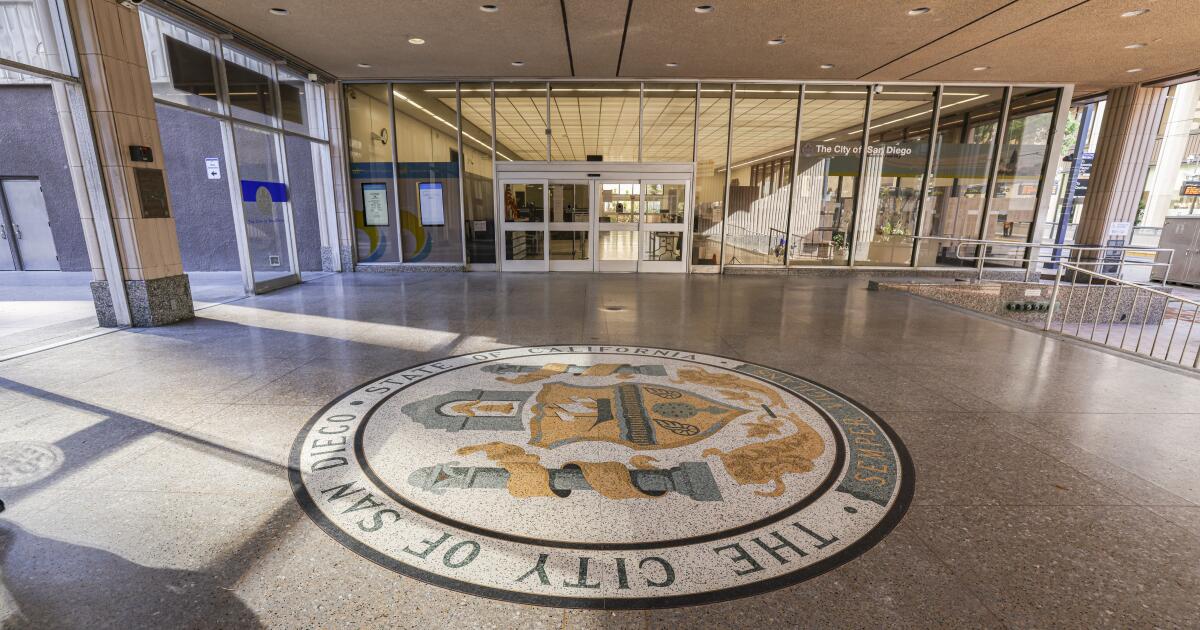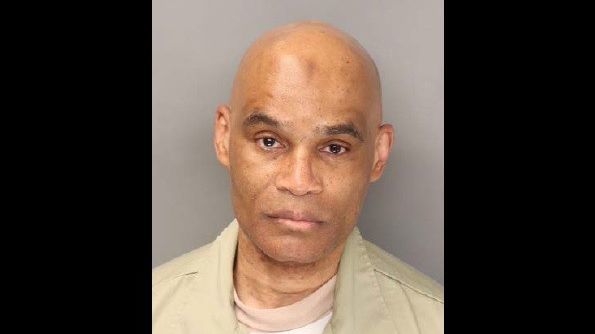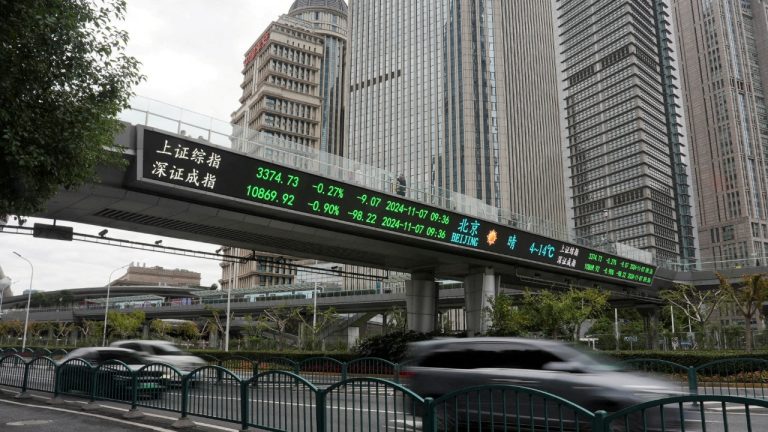

Shrinking revenues and climbing expenses — including $10 million in recent spending to cope with the Jan. 22 storm — have widened San Diego’s projected budget deficit for the upcoming fiscal year to $167 million.
The growing gap has prompted Mayor Todd Gloria to declare a partial hiring freeze, prohibit any non-essential spending and block city departments from re-routing money from one expense to another.
But Gloria and City Council members say those moves won’t be enough to avoid deep operational cuts and some difficult choices among priorities like libraries, parks, arts programs and street paving.
“This year’s budget process will be extremely challenging and requires a proactive and coordinated approach to protect core services, implement cost-saving measures and align the city’s expenditures to match our fiscal reality,” the mayor said in a Feb. 22 memo to the council.
Gloria, who is scheduled to release a proposed budget April 12, said he would strive to avoid cuts to what he called “core” services — public safety, infrastructure, homelessness and housing.
That leaves every other service in the city’s $2 billion annual budget vulnerable.
Kent Lee, chair of the council’s Budget Review Committee, said the process of crafting a balanced budget by mid-June will be difficult.
“There is no doubt that the financial forecast is bleak and we have some significant fiscal challenges ahead of us,” Lee said. “I will be asking my colleagues to collectively sharpen our pencils and to rethink our approach to the upcoming budget cycle.”
The primary challenges are lower-than-expected sales tax and hotel tax revenues combined with higher-than-expected personnel costs, mostly because of overtime and the city having filled hundreds of vacant jobs.
Sales tax revenue during the ongoing fiscal year, which ends June 30, is projected to be $27.6 million less than expected last summer. Hotel tax is projected to be $6.5 million short of projections.
Sales tax had been expected to rise during the ongoing fiscal year to $401.6 million but is now projected to be $374 million. Hotel tax was predicted to be $172.7 million but is now projected at $166.2 million.
City finance officials blame the drops primarily on inflation curbing consumer spending and leisure travel in recent months. They said high interest rates are also discouraging purchases that generate sales tax.
The city’s independent budget analyst called the Finance Department’s estimates reasonable but suggested they should probably be about $10 million lower — $5.7 million lower for sales tax and $4.2 million for hotel tax.
“The economy appears to be course-correcting after a rather robust post-pandemic recovery,” said Amy Li, a fiscal and policy analyst for the IBA.
Li stressed that despite projections that hotel tax would grow sharply during this fiscal year, the city has collected $6.7 million less than it had collected at this point during the previous fiscal year.
On the expense side, the city has set aside $10 million to cover expenses related to the Jan. 22 storm, which required a large emergency response including many overtime hours for city workers.
The city may eventually get reimbursed by the federal and state governments, but officials said that could take multiple years.
Lee said the city could justify using some of its $215 million in reserves to cover ordinary expenses and plan to restore those reserves once reimbursed.
Another problem on the expense side is city workers’ overtime pay, which is projected to be higher than expected in several departments, include police at $7.8 million over expectations, fire at $3.2 million above, parks and recreation at $3.2 million and transportation at $3 million.
Perhaps more importantly, annual savings in the tens of millions the city has been getting each year from leaving unfilled jobs vacant are projected to vanish entirely, because large pay raises approved last year have helped fill hundreds of openings.
“City departments have made significant strides to fill vacancies in their departments — this is welcome news, as filling positions has improved service levels for the public,” the mayor said. “However, we must balance the speed at which we are hiring with the realities of our budgeted personnel expenses.”
The mayor’s partial hiring freeze temporarily transfers hiring authority from department heads to the mayor’s executive team and Chief Operating Officer Eric Dargan. Gloria said the change will ensure the city fills only the most critical positions before the end of the fiscal year.
Also, any departments that get money from the city’s general fund must suspend through June 30 all non-essential spending, which the mayor defines as expenditures that do not directly impact core city services.
In addition, the mayor is blocking departments from spending money earmarked for one specific purpose on a different purpose, which has been a common practice.
“It’s just one more control,” said Rolando Charvel, the city’s comptroller.
Other challenges for the new budget include concerns that the state could reduce homelessness funding the city receives and the city’s recent plans to sharply boost spending on road maintenance and flood-channel clearing.
In addition, the city’s pension board is scheduled to vote March 8 on a proposal to shrink the city’s pension payment for this year by roughly $40 million, which would reduce the projected deficit.







